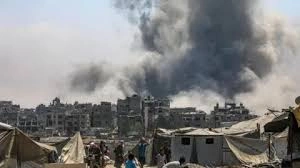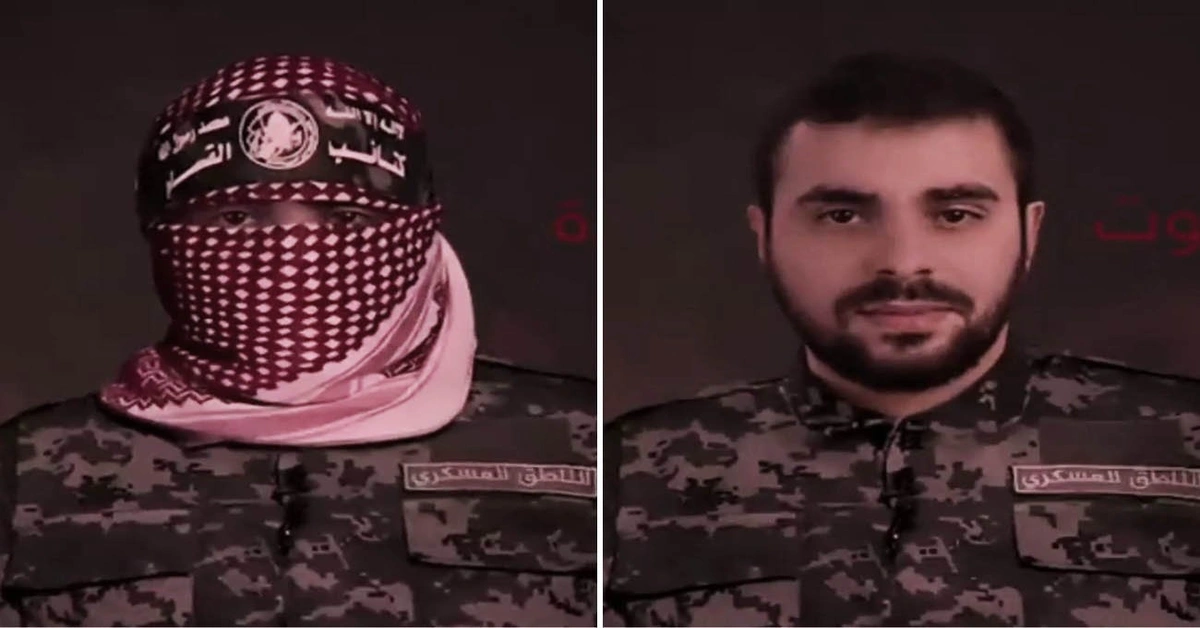Abu Obeida Killed in Gaza has sparked global attention, raising concerns over conflict escalation, civilian safety, and the uncertain future of peace in the region.
Israel Confirms Targeted Operation
Israel has announced that Abu Obeida was killed in Gaza during an air strike on a residential building in Gaza City. Abu Obeida, the well-known spokesman of Hamas’s military wing, al-Qassam Brigades, was said to be struck in the crowded al-Rimal neighborhood. The Israeli Defense Forces (IDF) and Shin Bet stated the operation was carried out using precise intelligence and advanced weapons.
Defense Minister Israel Katz praised the IDF and security agencies for what he called a flawless execution. He added that more of Hamas’s senior figures would be targeted as Israel prepares for an intensified campaign in Gaza City.
Casualties and Local Impact
Reports from Gaza hospitals and local journalists suggest the strikes caused heavy civilian casualties. Witnesses said at least seven people died immediately, while more than 20 others were injured, including children. Shifa Hospital later confirmed dozens of bodies were brought to its morgue after the strikes.
Eyewitness Mohammed Emad, a barber living near the targeted building, told reporters: “The blasts were terrifying. I saw children bleeding, and people were running in all directions.” Videos verified by media outlets showed civilians fleeing, carrying the injured, and blood-covered bodies in the aftermath.
The attack highlights how the operation that saw Abu Obeida killed in Gaza also deeply affected the local population living in already devastated neighborhoods.
Also Read:Cotton Zones Hit Hard by Recent Floods-Stay Updated!
Who Was Abu Obeida?
For years, Abu Obeida served as the masked voice of Hamas’s military wing. He became widely recognized for delivering televised speeches, always with his face covered by a scarf. Supporters viewed him as a symbol of resistance, while Israel saw him as the main figure pushing Hamas propaganda.
The IDF stressed that the strike that left Abu Obeida killed in Gaza was possible after weeks of intelligence gathering. According to Israel, his presence was identified in a building that had once operated as a dentist’s clinic.
In what may have been his last speech, a day before his death, Abu Obeida warned Israel that the fate of remaining hostages would mirror that of Hamas fighters if an invasion of Gaza City went ahead.
Ongoing Israeli Offensive
The strike that left Abu Obeida killed in Gaza comes as Israel expands aerial bombardments on Gaza City ahead of a planned ground operation. Prime Minister Benjamin Netanyahu has vowed to capture Gaza City and dismantle Hamas’s leadership.
Israel has announced plans to evacuate Gaza City’s entire population before the offensive. However, UN officials warn that forcing nearly a million people out risks a humanitarian catastrophe. Already, over 90% of homes in the city are damaged or destroyed, and basic services such as healthcare, water, and sanitation have collapsed.

Conflicting Claims and Humanitarian Crisis
While Israel celebrates the news of Abu Obeida killed in Gaza, Hamas has not confirmed his death. Instead, Hamas stated that dozens of civilians, including children, were killed in the Israeli air strikes. This conflicting narrative leaves many unanswered questions.
Local hospitals have also reported deaths caused by malnutrition and starvation as aid struggles to reach civilians. According to Gaza’s health ministry, more than 63,000 Palestinians have died in the ongoing conflict, with many being women and children.
Residents describe the Netzarim Corridor, controlled by Israel, as a death trap. Civilians searching for food or aid were reportedly met with gunfire, adding to the humanitarian crisis.
Symbolism of the Strike
The news of Abu Obeida killed in Gaza carries both symbolic and strategic weight. For Israel, it is seen as a major blow against Hamas’s leadership structure and propaganda machine. For many Palestinians, however, the strike is another reminder of the devastating toll of the war on civilians.
International observers remain concerned about the wider offensive. The UN has repeatedly warned that seizing Gaza City could bring catastrophic consequences, while humanitarian groups stress that displaced families face worsening hunger, disease, and trauma.
Conclusion
The targeted strike that left Abu Obeida killed in Gaza marks one of the most significant Israeli operations in recent months. While Israel hails the attack as a success, the loss of civilian lives has fueled anger and despair among Palestinians.As the war continues, the phrase Abu Obeida killed in Gaza will remain central to discussions of both military gains and humanitarian costs. The event highlights the ongoing cycle of conflict, the deep suffering of Gaza’s population, and the uncertain path ahead.



Join The Discussion